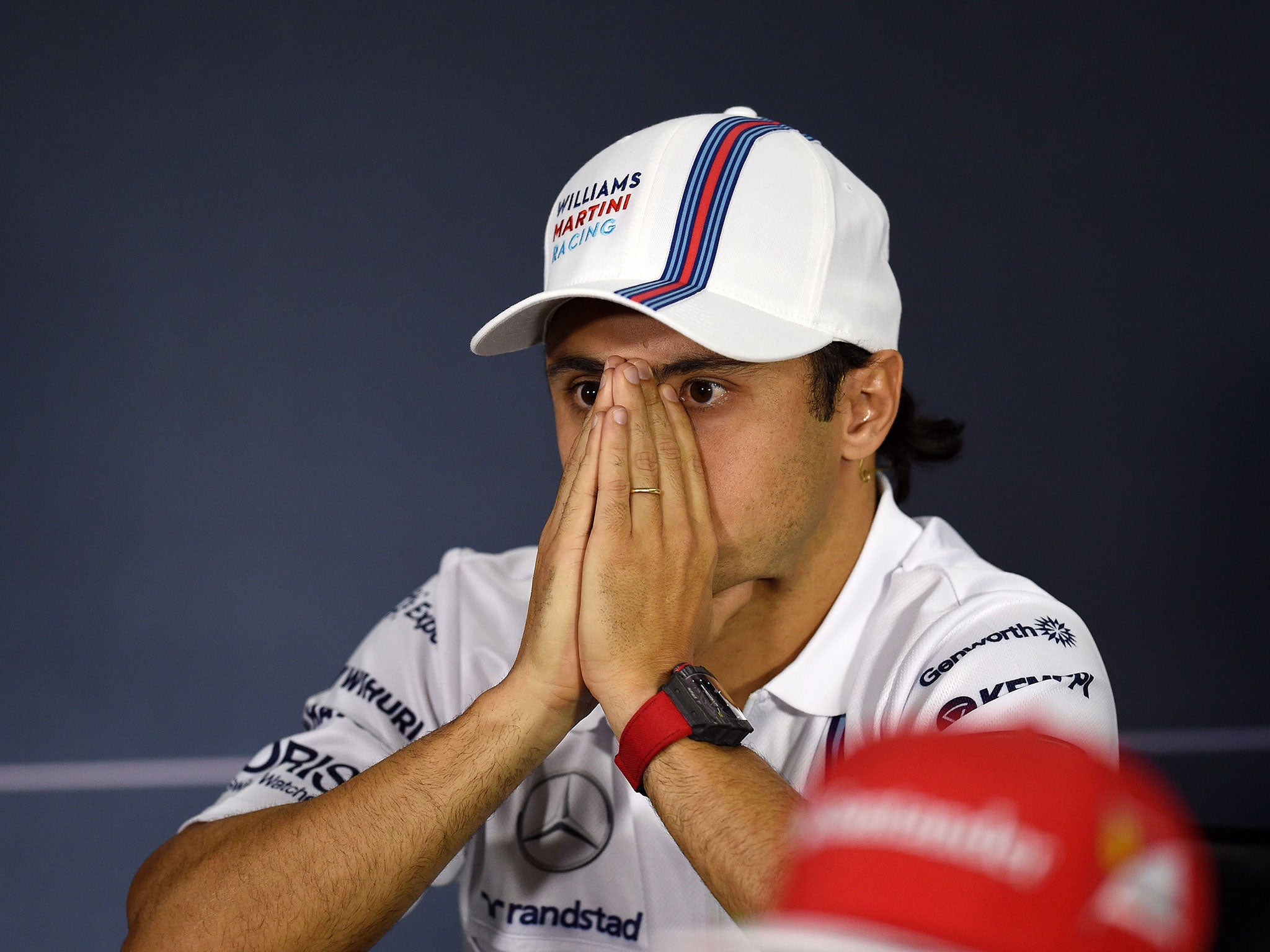F1 Russian Grand Prix 2014: Jules Bianchi crash has left drivers in fear
As the F1 bandwagon swept into Russia, the Independent on Sunday’s motor racing correspondent found that last week’s Japanese GP had cast a long, dark shadow

Monday 6 October
Philippe and Christine Bianchi and other family members arrive at the Mie General Medical Centre in Yokkaichi after a typhoon-delayed journey from France to be with their son Jules, who is in a stable but critical condition after an operation the previous evening to relieve the diffuse axonal head injury sustained in his crash in the Japanese GP at Suzuka.
Team bosses John Booth and Graeme Lowdon and other team personnel spend the night sleeping on the floor of the hospital. None would dream of leaving for the comfort of a hotel. Racers stick together.
Tuesday 7 October
In Sochi, Bianchi’s Marussia crew are turning the spare monocoque chassis into a car. They want to have it ready, symbolically, for their driver, as a sign of solidarity and support. Later the decision is taken not to run it, even though it is scrutineered for rookie Alex Rossi to drive, because that’s what the team feel is the right thing to do by Bianchi and his family. Rossi, a decent, thoughtful guy, is relieved even though his GP debut is cancelled.
F1 Russian Grand Prix 2014
Show all 35Wednesday 8 October
Having breezed through immigration in Moscow Domodedovo and weathered six hours in a matchbox-sized airport lounge and then a two-and-a-half hour flight, our Kermit green ‘S Club 7’ flight deposits us in Sochi.
The Olympic village looks romantic in the three o’clock morning light. To our relief our rooms are ready and empty; one junior driver was told that despite his room being occupied by others, that was the one he had been allocated.
Breakfast, six hours later, reveals Russian food to be of questionable quality and temperature. Most of us breeze through the security gates at F1’s latest spectacular new venue, stoked that so many Russians are excited by our sport, but one of our number is hassled about the prescription for his asthma inhaler. After a bold argument, he’s waved through with a smile.
Later that night he hears guys in the corridor outside his room practising their English. “Give me your money…” Interesting.
Thursday 9 October
I suggest to Sky’s Johnny Herbert that for the first time in 20 years I’m encountering scared drivers, but revise that to say drivers who have lost their confidence.
“No,” says the three-time grand prix winner, “they are scared. I talked to one this morning who admitted that, and said to me, ‘How can I go at 101 per cent any more, when I know that this can happen?’” A racing driver shouldn’t have too much imagination; now all of them have had the potential reality of racing shoved in their faces.
I go and find Felipe Massa at Williams. In the press conference he talks of how you cope with such reality when it is brought about by doing the thing you cherish the most. “What I love to do is to race. That’s where I feel happiness and pleasure. We know that we have risk in this sport, but it’s what I still like to do. It gives me motivations. Sometimes you think about it but then you’re thinking more and you understand that this is my world, this is what I like to do.”
We have a long conversation about his friendship with Bianchi. The Frenchman’s plight has hit him hard; they share the same management team, and they’ve known each other for many years. “Jules is special,” Felipe insists wistfully. “He’s a good kid with a lot of talent.”
The subtext is an elephant in the room; it’s ignored, because being anything less than positive feels like betrayal. When we part, we agree it’s one of the first truly serious conversations we’ve had in the last 12 years. That tells you everything about the mood here.
Friday 10 October
So many people at Marussia are hurting. All those miles away, Booth remains with the Bianchi family in Yokkaichi. You can only imagine what this down-to-earth and intensely human racer is going through. Likewise the Bianchis.
Lowdon is cut from similar cloth and our lengthy catch-up verges on the emotional throughout. He’s carrying the team this weekend, juggling nightmare financials with the need to be seen to be strong even though his heart is breaking. He’s succeeding with honour.
Saturday 11 October
Another conversation over coffee at McLaren with Herbert. We agree that most drivers would normally admit they speed under yellow flags, and that their teams chastise them when they don’t. They’re racing drivers, always pushing the envelope.
“I don’t see why we can’t adopt the situation where the cars are all slowed, by degree, and sensibly, by a central system, so that the drivers can’t exceed the delta for a given corner that’s under yellow flags,” Johnny suggests.
We agree that people such as Peter van Manem at McLaren, who created the standard electronic control unit that all cars are obliged to run, could do that in his sleep.
That evening the FIA opens up about its findings thus far. The official investigation will be conducted by the highly respected former Lotus engineer Peter Wright. Only the deepest cynics or the internet trolls doubt that the FIA are as serious as ever about the never-ending quest for maximum safety.
Subscribe to Independent Premium to bookmark this article
Want to bookmark your favourite articles and stories to read or reference later? Start your Independent Premium subscription today.

Join our commenting forum
Join thought-provoking conversations, follow other Independent readers and see their replies